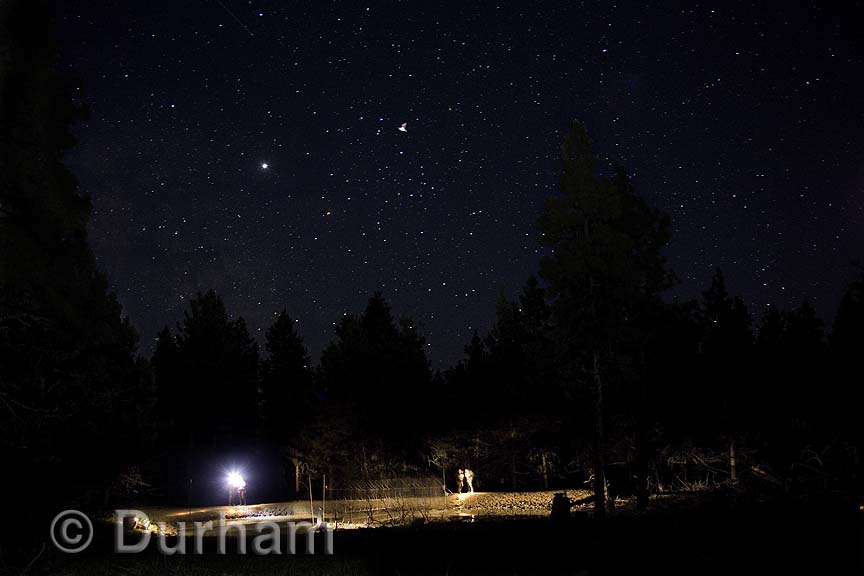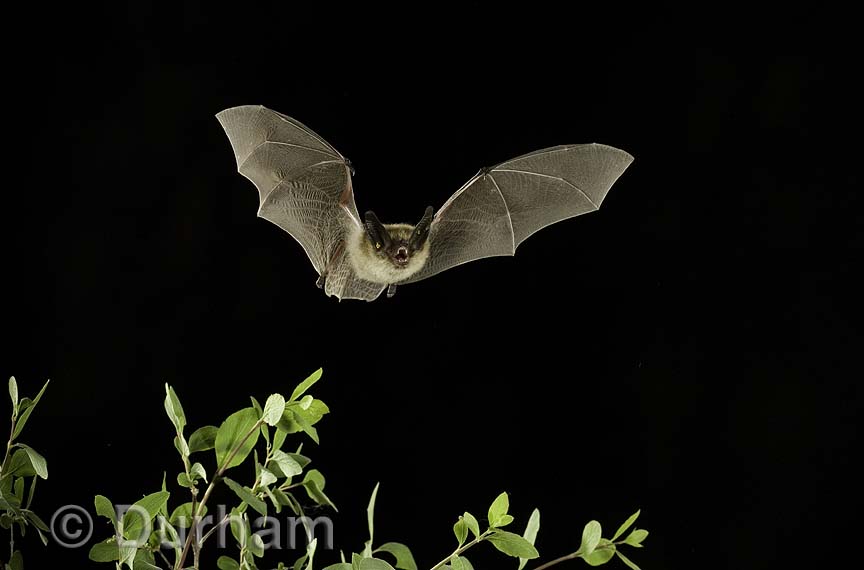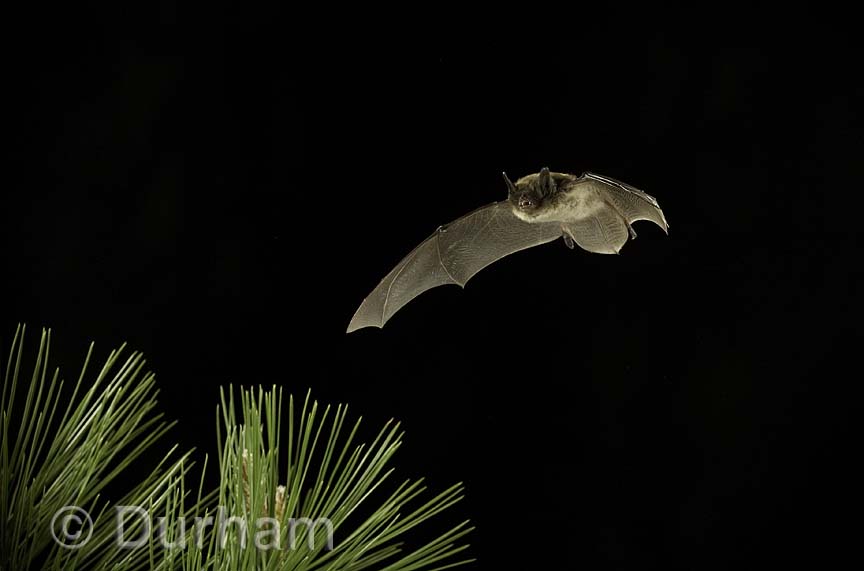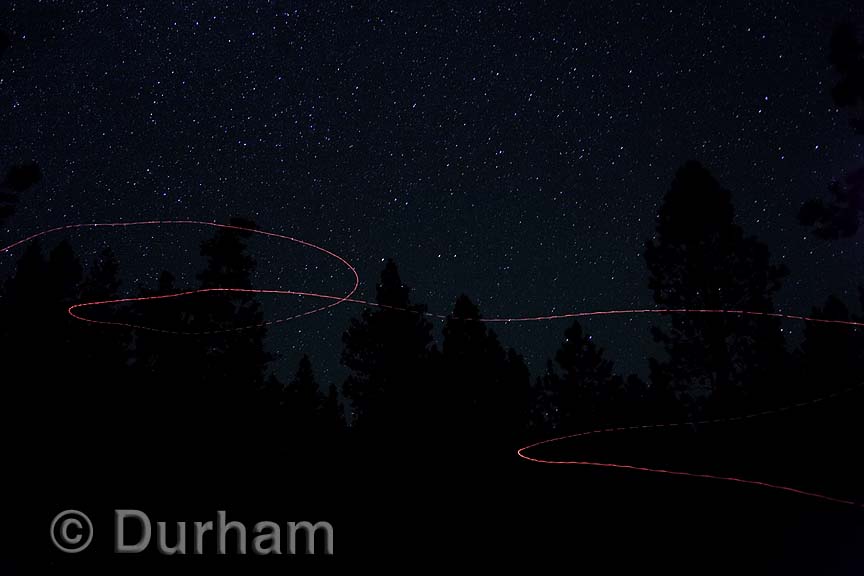
The bat crew at work.
Bats are very fast, nocturnal flyers that can be seen all around the northwest at dusk, but determining species can be very, very challenging. The biologists that specialize in bats will typically catch a few bats, measure ears and wing arm length, record their vocalizations and do their best to determine species. The bat is released a few minutes later. They will collect this information for years to try and identify population trends, and measure how healthy bat colonies are.
Photographing bats can be quite challenging as well, but between the capture and the recording of data, I will spend a few minutes to try and photograph the bat, and if I am lucky - I can get a cool photo or two. The detail I am able to record of the bats in flight can actually help researchers identify the bat species, and the biologists use the images as part of their reports and published literature.

A western long-eared bat (Myotis evotis)

Yuma myotis
In the time exposure image below, a light is temporarily placed on the bat so that researchers can record the high-frequency calls of the bat. The light will fall off in a few minutes.


2 comments:
Beautiful pictures and great blog. If you ever need great local content, news videos, articles, etc. come check us out.
--Matthew from the local desk at thenewsroom.com
Amazing photos of wonderful creatures. You do them justice.
(And you are incredibly talented. Love your blog photos and stories.)
Post a Comment